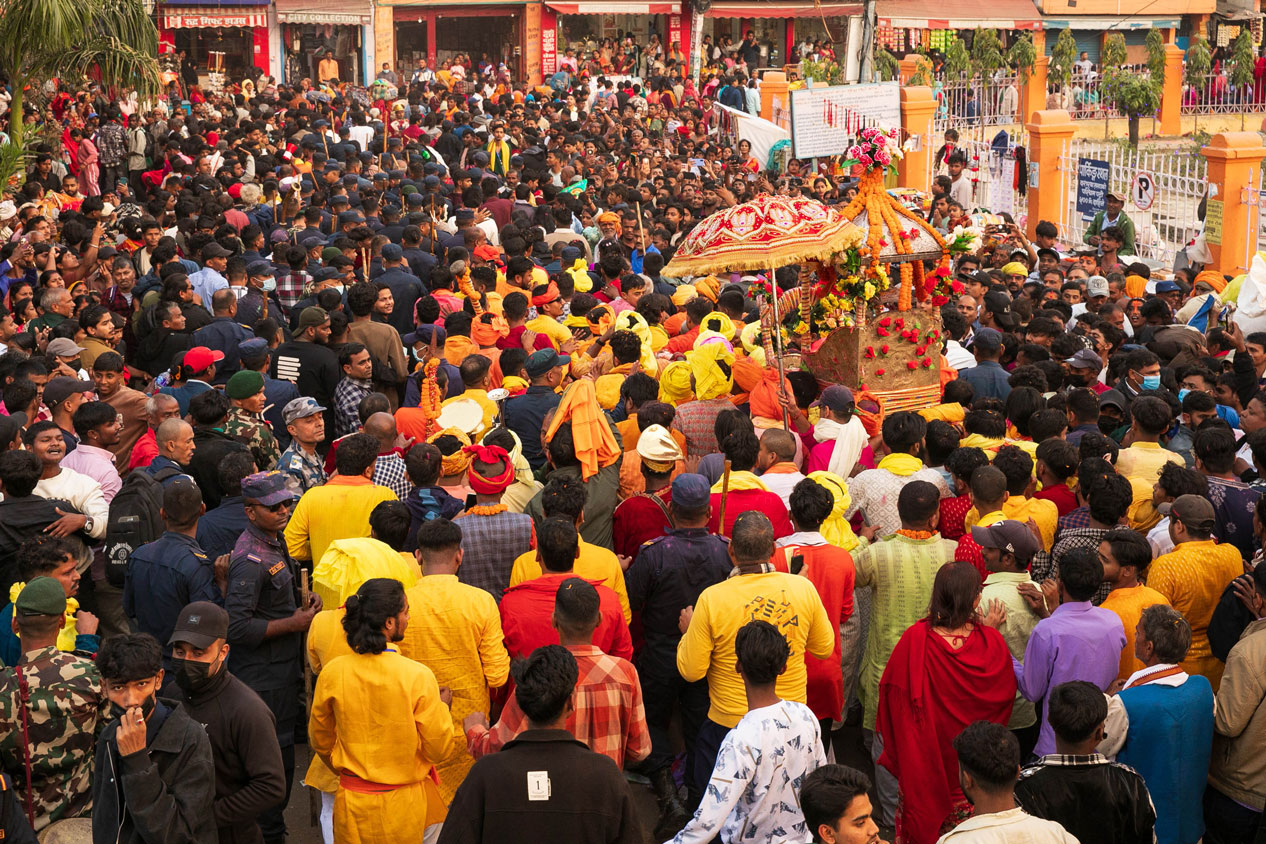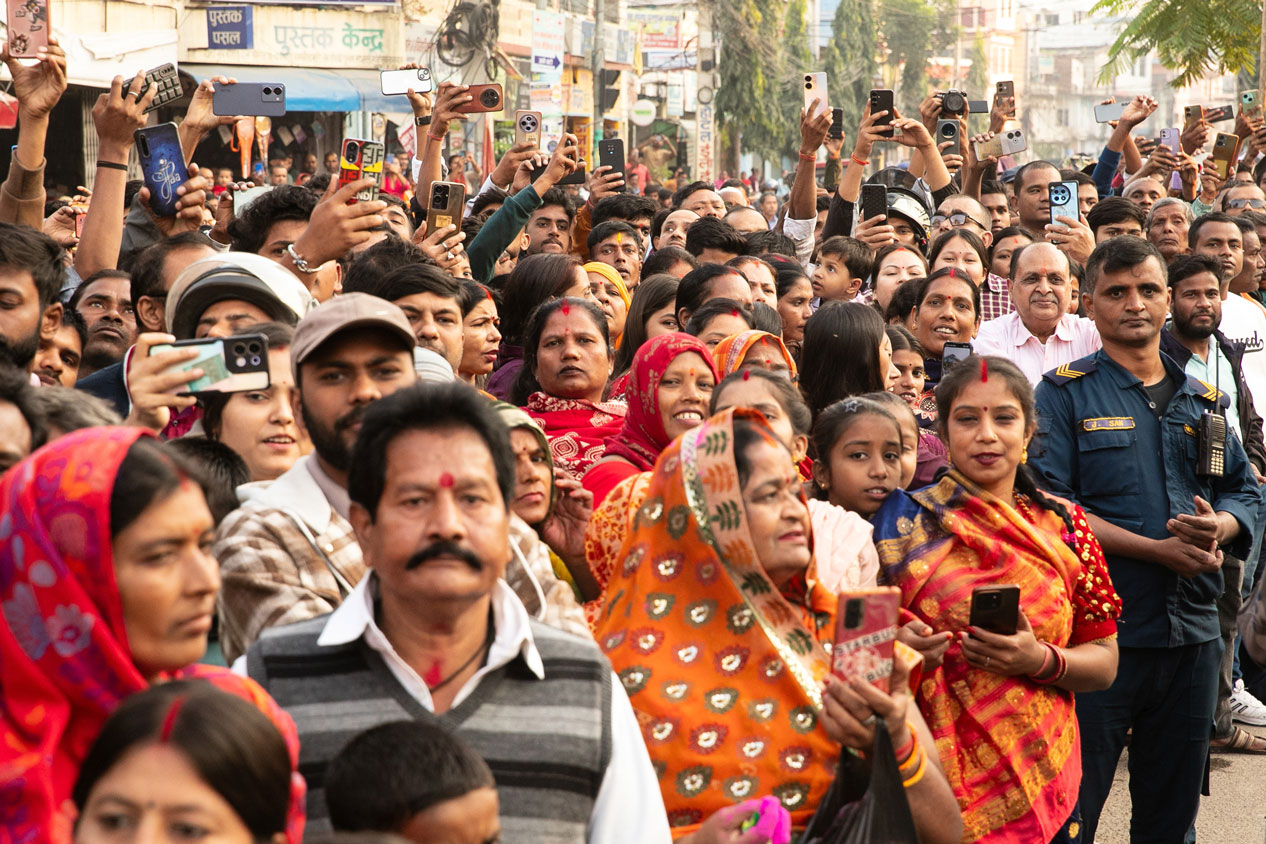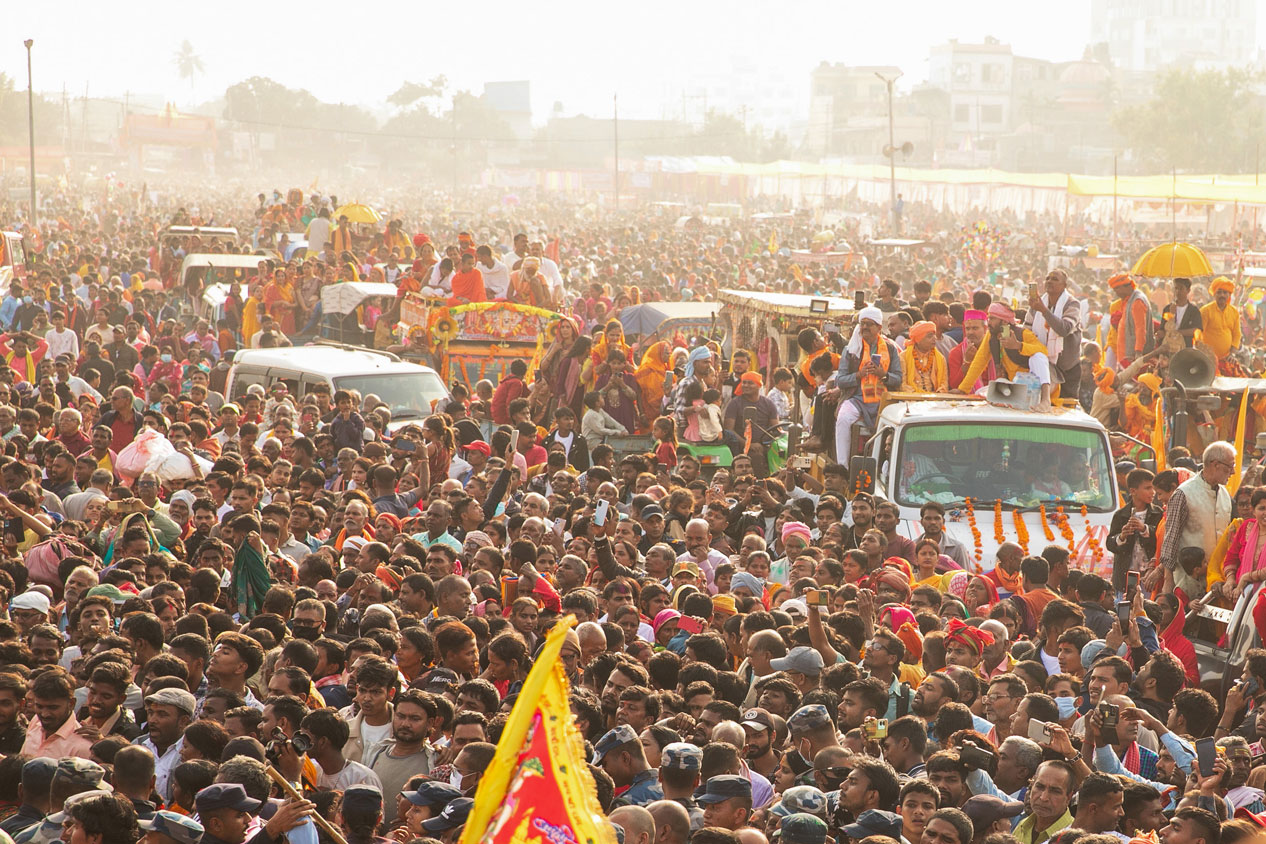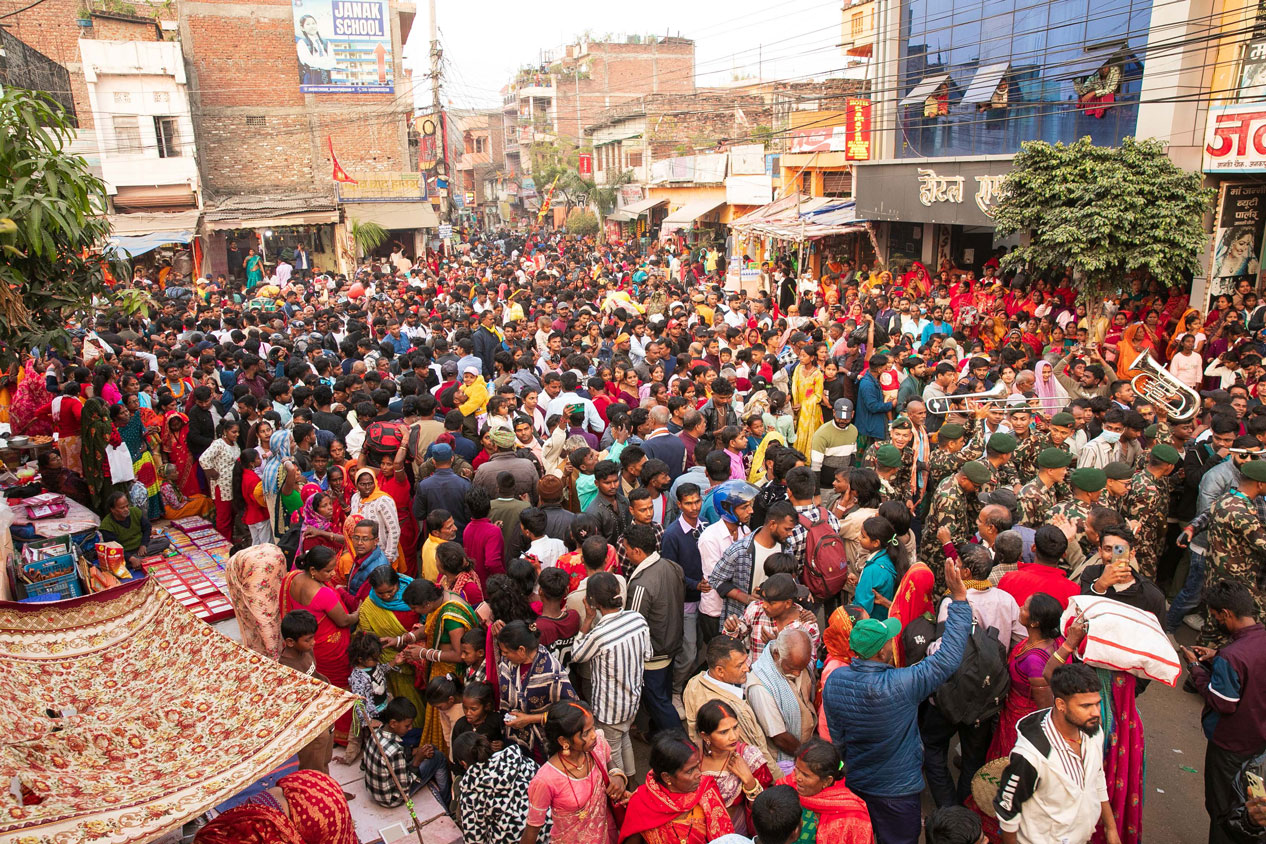

धनुषा। पञ्चमी जनकपुरस्थित जानकी मन्दिर परिसरमा धुमधामका साथ मनाइएको छ।
मिथिलाको प्राचीन राजधानी जनकपुरमा भगवान् राम र सीताको विवाह महोत्सव विधिपूर्वक सम्पन्न भएको छ।
त्रेतायुगमा मार्ग शीर्ष शुक्ल पञ्चमीका दिन राम र सीताको विवाह भएको सम्झनामा विवाह पञ्चमी पर्व मनाइन्छ।
त्रेतायुगमा मिथिलाका राजा जनककी छोरी सीताको स्वयंवरका लागि सर्त स्वरूप राखिएको शिव धनुषलाई अयोध्याका राजा दशरथका जेठा छोरा रामले भाँचेपछि मार्गशीर्ष शुक्ल पञ्चमीका दिन राम र सीताको विवाह सम्पन्न भएको थियो।

मिथिलाको संस्कृतिअनुसार मटकोर, तिलकोत्सव, स्वयंवर र विवाह संस्कार सम्पन्न गरिएको हो। भगवान् रामको प्रतिमालाई विशेष रूपमा निर्मित डोला सिंहासनमा राखी राम मन्दिरबाट बाजागाजा, झाँकीसहित रङ्गभूमिमा पुर्याइन्छ। त्यस्तैगरी जानकी मन्दिरबाट सीतालाई विशेष सुसज्जित डोलामा राखी रङ्गभूमिमा लगिन्छ।
रङ्गभूमिमा विवाहको विभिन्न विधि सम्पन्न पश्चात सीता, रामलाई जानकी मन्दिरमा ल्याइन्छ र मिथिला संस्कृतिअनुसार विवाह सम्पन्न गरीएको छ। विवाह महोत्सवमा निस्केको भगवानको डोला शोभायात्रामा नेपालीसहित भारतीय विभिन्न क्षेत्रबाट श्रद्धालु भक्तजन सहभागी हुने गर्छन्।
हेर्नुहोस् थप तस्बिर :













